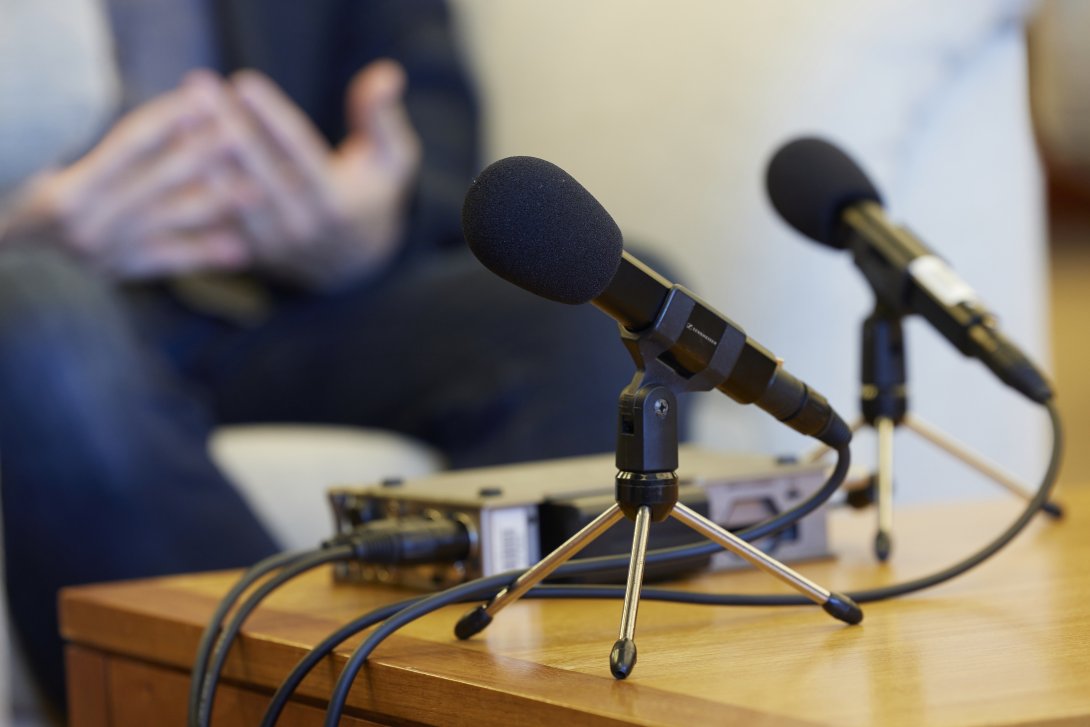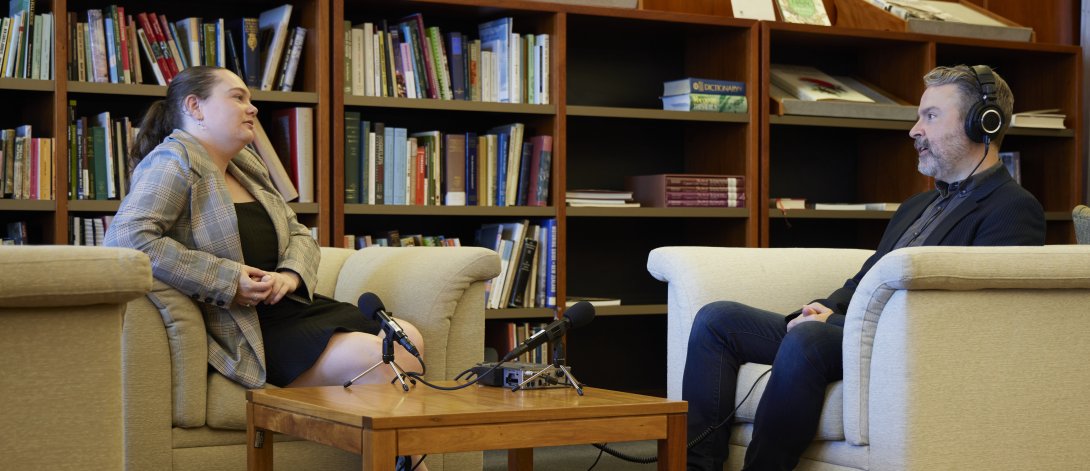Due to scheduled maintenance, the National Library’s online services will be unavailable between 8pm Friday 29 November and 11am Saturday 30 November. Find out more.

The COVID-19 virus was first identified in December 2019 with the first Australian case recorded 20 January 2020. The pandemic’s effects in Australia and across the globe continue to be profound.
By the end of October 2024, Australia had officially recorded over 25,000 deaths and 12,000,000 cases of the virus, with unreported figures thought to be higher still. Lockdown restrictions, social constraints, financial disruptions and resource shortages have changed the way Australians engage with one another and their environments.
The oral history project
The Library is recording up to 250 interviews with a diverse range of Australians to ensure that stories of the COVID-19 pandemic are captured for present and future generations.
We have recorded 100 interviews, with many already available in our catalogue.
The project is part of the Library’s ever-growing oral history collection.
Who we are interviewing

Capturing the diversity of Australian pandemic responses is a challenging task. From healthcare workers on the COVID frontline, to school students who began learning online, to residents of aged care homes, every Australian has an important story to tell.
To capture some of that diversity, we have been interviewing people in each state and territory and across urban, regional, rural and remote areas. We’ve been speaking with people of diverse cultural backgrounds, ages, genders and abilities. And we’re including diverse perspectives on public health issues and policies.
We’ve also been reaching out to community groups, industry representatives, and volunteer organisations, seeking their suggestions on people to speak with and topics to explore.
We’re also creating a record of the policy decisions, debates, and medical advances that shaped Australian COVID-19 experiences. This is being captured by interviewing people who played prominent leadership roles through the pandemic, including political leaders, public health officials, medical researchers, and leaders in sectors including science, the arts, education, and business.
We want to ensure we capture a diverse range of perspectives and experiences. To capture the varied experiences, we are interested in interviewing those who in 2019-22 were:
- Apprentices/TAFE/Vocational Education students
- Unemployed or underemployed
- Construction workers
- Cleaners, particularly COVID deep-cleaning teams and/or hospital cleaners
- Delivery drivers
- Hospitality workers or hospitality business owners
- Retail workers or retail business owners
- Factory, warehouse or abattoir workers
We’re also interested in hearing the experiences of people who migrated to Australia after 2019 or who moved from a city to a regional area to work-from-home.
The interviews
All interviews are conducted by trained and experienced oral historians who are commissioned by the National Library of Australia and must be completed by 31 May 2025.
The Library records whole of life oral history interviews. This means we are not just interested in the ways Australians responded to the COVID-19 pandemic, but also their broader life stories.
The interviews will become part of the Library’s oral history collection, so that future generations will be able to understand the impact and significance of the COVID-19 pandemic as a major global event.
Interested in participating?
If you would like to get in touch about participating in this project, please contact us at select@nla.gov.au
Explore completed interviews
You might be interested in participating but you want to know how the interview process will work. A great way you can do this is by exploring the interviews that have already been conducted and digitised. You can discover the experiences we’ve heard and see if your story will help provide a more complete picture of the pandemic in Australia.
Below are a few quotes from interviews we've already completed.
Emma Harding interviewed by Anna Zhu
Emma Harding, who was interviewed by Anna Zhu for the project, was living in Sydney and in the early stages of a PhD in virology when the COVID-19 pandemic reached Australian shores. In addition to her studies, she volunteered her time testing sewerage viral loads, as a way of applying her skills to help her community. For Emma, the way time seemed to pass was a defining aspect of her pandemic experience:
I think time slowed down. It's difficult now because I'm already starting to forget it or blank it over those… years, but it seemed like a long time. And I think that's because of the amount of stuff I was doing that just dragged out… It was the kind of work where you're too busy and there's not enough time to get it all done. So I think just having that feeling for a lot of time did slow down every day… I'm not sure why, but it seemed very long.
Gert-Jan de Graaff by Nikki Henningham
Gert-Jan de Graaff is the CEO of Brisbane Airport, a role he has held since 2018. He speaks with Dr Nikki Henningham about the impact of the pandemic upon airport staff and operations, as well as some of the complex challenges he faced as a result. Gert-Jan paints a stark picture of Brisbane Airport during this time:
We had about 30 days of zero international passengers, whereas it used to be more than 20,000 [passengers] every day… so that was tough and also very confronting, because our international terminal is a very big building. Usually there are thousands of people working there everyday, and there was nothing. The only thing you saw was… Australian Federal Police officers, a few health people, a few airline staff. It was really scary stuff.
Astrid Jorgensen interviewed by Annie Gaffney
Astrid Jorgensen is a vocalist, conductor and the founder of Pub Choir. Faced with the cancellation of dozens of performances as a result of the COVID-19 pandemic, Astrid created Couch Choir, an online experiment in virtual choral singing that became a world-wide sensation. In her interview with Annie Gaffney, she reflects on Couch Choir’s success:
For a time it was the closing credits for the BBC World News. They showed ‘Close To You’ and were like ‘Just don’t forget that everything is going to be ok’ and these 1500 faces would come on. [T]he followers just skyrocketed on this afternoon, and that began a small period of doing Couch Choir … I think it really met a need in the world… it was really special to be able to contribute something.